Elizabeth I ruled England for 44 years, compared to Mary I’s five year rule, Lady jane Grey’s nine day rule and Edward VI’s six year rule, and she made a huge difference to the country.
As I said in my last post, England was in a depressing state when she inherited it from her half sister Mary I, yet when Elizabeth died England was a strong and prosperous country, a force to be reckoned with, and that is why her reign is known as “The Golden Age”.
Historians are divided in their opinion of this iconic queen. Some feel that she was a great monarch who used her shrewdness, intelligence and charisma to turn the country around, others feel that she was just lucky and still others have a more balanced view, pointing out the failures of her reign such as her military defeats. Whatever your overall opinion of Elizabeth, you have to give her credit for what she accomplished.
These are the main achievements of her reign:-
- Becoming queen! – She had been made illegitimate by her father Henry VIII, when her mother was executed for treason and her life had been in the balance during Mary I’s reign when she was linked to uprising such as the rebellion of Thomas Wyatt the Younger.
- Defeating the Spanish Aramada and her successful raids on the Spanish at Cadiz.
- Following on from her father’s work on the navy and turning England into a strong and dominant naval power.
- Defending England from Scotland and actually turning the Scots into a permanent ally.
- Increasing literacy in England.
- Expanding England overseas – Elizabeth I encouraged explorers like Sir Walter Raleigh, Sir Francis Drake, Sir John Hawkins and others, to discover new places and form colonies.
- Founding the Church of England, as we know it today.
- Raising the status of England abroad.
- Surviving and defeating plots and uprisings against her – These included the Essex rebellion, uprisings in Ireland and the famous Babington plot.
- Helping the poor – Her Poor Laws gave support to those in poverty.
- Ruling England in her own right as Queen without a consort.
- The promotion of the Arts – Her love of arts led to theatres being built and great poets and playwrights like Shakespeare, Spenser and Marlow emerging.
As Elizabeth herself said in prayer:
“[At a time] when wars and seditions with grievous persecutions have vexed almost all kings and countries round about me, my reign hath been peacable, and my realm a receptacle to thy afflicted Church. The love of my people hath appeared firm, and the devices of my enemies frustrate.” (Source: Anne Somerset’s “Elizabeth I”)
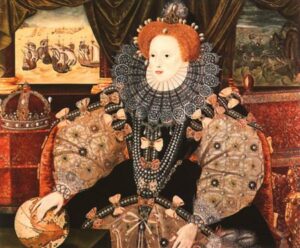

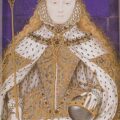
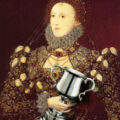



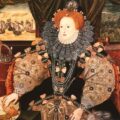
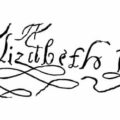


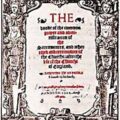
In addition, we can also perhaps consider here her impact on the role of women, in general, in society. Before Elizabeth, women were at best thought to be secondary in importance, especially in a political or intellectual sense. After Elizabeth, it was acceptable for women to assume responsibility and power in areas that previously had been forbidden to them.
After Elizabeth, never again would women be considered feeble or inadequate in an intellectual sense. Never again would they be viewed as unreliable, undiplomatic or easily swayed. The world changed in many respects with the reign of this remarkable woman, but it also changed for women as a gender, too, and in a way that we can easily forget in our own enlightened times where we take equality for ganted in so many areas of our lives.
i woulk like to know england political of my course of british studies
Here are a few more achievements: great houses built and expanded
The first flushing loos
Great inventions and middle classes that made money from becoming self made.
A woman that showed she could stand up to the men in her life and rule alone, although this did make her vulnerable to various claims to the throne and foreign attack.
Shrewd efforts to play off Scotland and Spain and make her own choices of ally by making Scotland her successor she ensured that the country would unite with her neighbours. This however sowed the seeds of rebellion and civil war as James and his son where even more into divine right than her father.
Great arts and the theatre. Great adventure abroad and respect as a nation. She also wrote many letters to some important monarchs that enabled us to expand to the east such as Russia. We also journeyed to China and to India just at the end of the reign.
Here are her failings and not so golden age stuff:
The Catholic north made even more alien by her persecutions and policies here and in fact her open hostility to the northern earls.
Her treatment of Mary Queen of Scots although in some part justified was foolish and reckless.
The so called Poor Law was not made until 1601. An attempt to solve the problem in 1563 did not go far enough and was not enforced correctly. The policy was in chaos as many of these things often are, did not address beggers save to make them even more criminals than Henry had and a bigger problem for the rest of the country.
There was just as much poverty and terrible disease as in any reign. Her rich people could have put their money into making things better rather than entertaining her and her court.
The number of alms houses under Elizabeth are fewer than in other reigns.
The Defeat of the Amarda was the great British weathr not English ships.
She provoked war with Spain when she could have had a great ally in Philip by not attacking Cadiz and not attacking his legitimate shipping and rights in the New World. You will find the law was on the side of Spain and not on the side of England.
Her so called middle way in religion may have been all very well intended but was a complete nightmare and in fact she went out of her way to alienate the Puritans and the Catholics in the country. It was illegal to be a Catholic practising in England and hundreds were killed. It was illegal to be a Catholic priest and hundreds were killed.
The highest number of people tortored in England is under Elizabeth I. Records of official and unofficial orders to torture show that even James I who took part in torture and questioning of people himself did not order the use of torture as much as Elizabeth’s government. True she may have felt that she had justification but the facts are the facts.
She caused wars of disaster in Ireland and with Spain later in the reign. She tried to force Ireland to submit to her and it would not. Her Lord Leuitennants could not put down the Great O’Neil and others. The first official witch trials took place under Elizabeth in 1563 and the 1590’s. These were worse under James who brought the terror to England but the first trials were here. The first statute appeared under Henry VIII but few trials for it exist.
After the Northern Rebellion four times as many people were executed by Elizabeth as by either Mary or Elizabeth.
Her rule ended with famines and starvation and things for the poor still did not improve.
She was jealous of anyone who had a happy marriage and many of her ladies were cruelly banished or put in the Tower if they married without her consent. She also banished the wives of her gentlemen from court.
She did a lot to encourage invention and trade, but it again was the rich alone and the middle class who came out well. Even sailors on the Amarda died of starvation as they were not paid after service on her ships at that time. Even the hospitals many went to could not prevent that and were not paid.
The Elizabethen Age was not a Golden Age it was an Age that made England grow up and waken up to it’s responsibilities. It was during the latter part of the Age when she grew up and stopped trying to romance everything in a doublet at her court that she saw the possibilites of England.
Henry VIII is the true father of the navy, but Elizabeth woke up and began to see the need to expand on that legacy. She took the larger ships built first under her sister Mary as proto types and improved on them. She saw our ships become larger and more speed in them. She saw us go around the world and bring back great wealth even though we did pinch it. She also saw more products come in from the new world, exotic fruits and veg and unfortunately tobacco. She also oversaw the start of the slave trade and turned a blind eye to it because the same people who took part in it also expanded our sea trade.
Town houses provided better living for more people in the towns and cities and some improvement in ordinary dwellings also took place, but still the poor did not feature in this improvement. It was only the start of the Poor Law that enabled them to gain any benefit and to be cared for by the parish, but at a cost; they lost any freedom they had and the poor were regulated.
Our ports grew and our contacts around the world but as more and more people came into the towns the normal population problems and camped conditions took place and would not be resolved until the 20th century. Some problems are still with us even now and may never be solved. Homelessness began to increase with the dissolution of the monastic houses and the dismissal of monastic servants, it was not solved then and has never been solved now. Elizabeth was not that far sighted.
Fashion and clothing advanced for middle classes as well as the rich or the court and her fashions are iconic for England.
There are other things iconic of Elizabeth’s England that allow us to understand the era and to see it visually, musically, through theatre and literature, buildings that brought items from the higher lives to the ordinary people and of course the life of entertainment; though the inns and the theatre that the poor could make their own. Not a golden age, but certainly an awaking and iconic one.
You DON’T know BANDITJERK what you are talking about so maybe you should SHUT-UP with your unfounded sick rant about what you call not so golden age stuff. Educated much are we? Where are your credible sources. Your absurd post is nothing more than another EVIL TABLOID.
Please can we calm things down and be polite and respectful. Thank you.
Loved reading all of the comments… this has really helped to see all perspectives with my child’s school assignment instead just what the public school system wants you to know.
Please could someone tell me when Elizabeth said that prayer “At that time…the devices of my enemies frustrate”? Thanks 🙂 Great article!
To Queen of hearts, your abusive response to my informative and well balanced post proves you know nothing. I have been educated and researched Tudor Dynasty for years. I have several qualifications in this area and yes, I do know my stuff. Claire’s articles are excellent and well researched, but I am entitled to disagree if I don’t believe that Elizabeth I led a golden age. If you actually read my post you would have read my support at the good achievements of the reign of Elizabeth, but also a well balanced criticism of her life and reign. She made errors as did every other monarch. It was not a golden age to many of her subjects who did not share her reforms. My post acknowledged that trade expanded but that economic growth and war also hindered our growth. I suggest you do some proper research before calling someone’s views Evil Tabloid. As for my rant, I think it is your uneducated post that is a rant, most people who accuse others of ranting, like you, in loud abusive language, and usually the ranters themselves.
Thanks Banditqueen, your post was really helpful, whatever enyone else says!
I see no problems with this article. Its well researched and Elizabeth was a fairly effective Queen and she did improve England’s prospects.